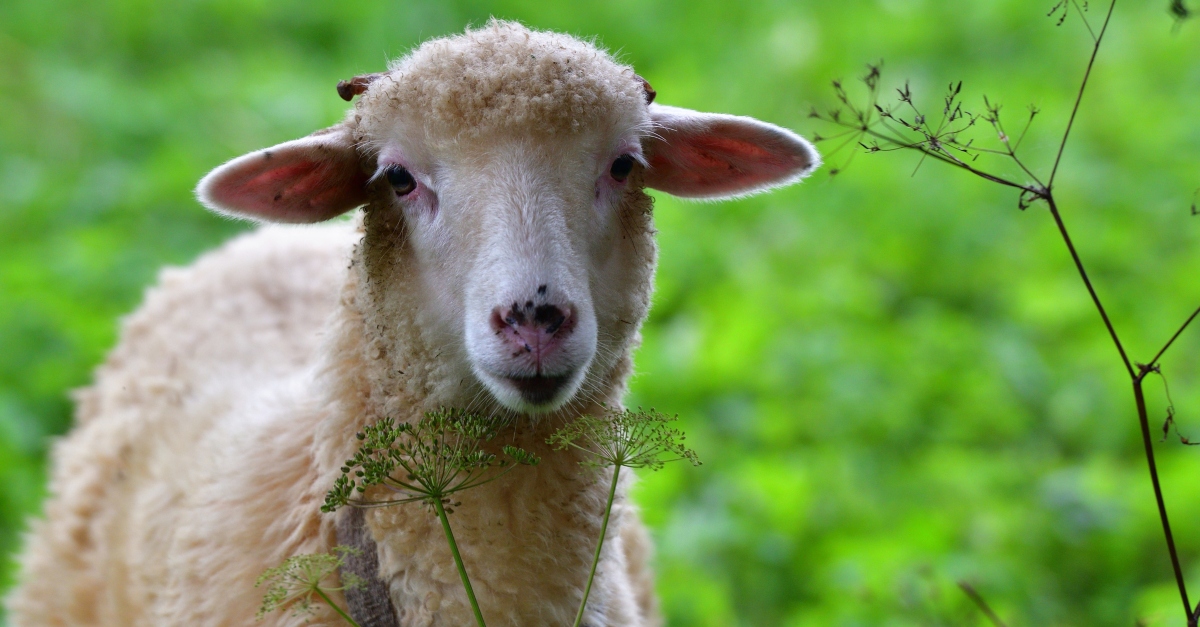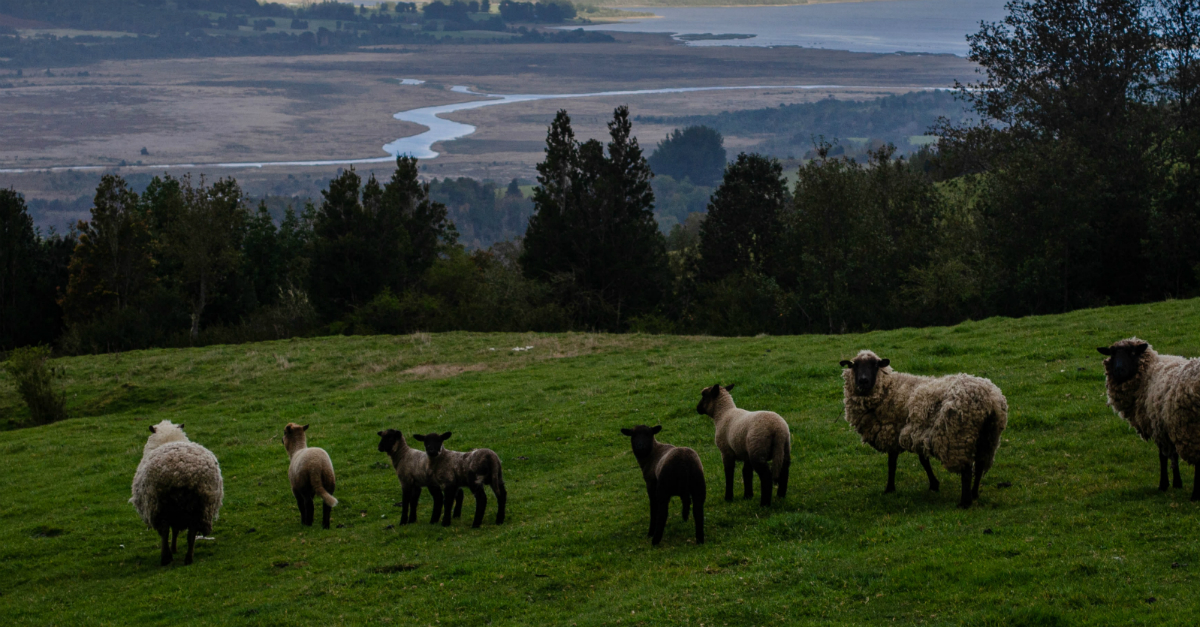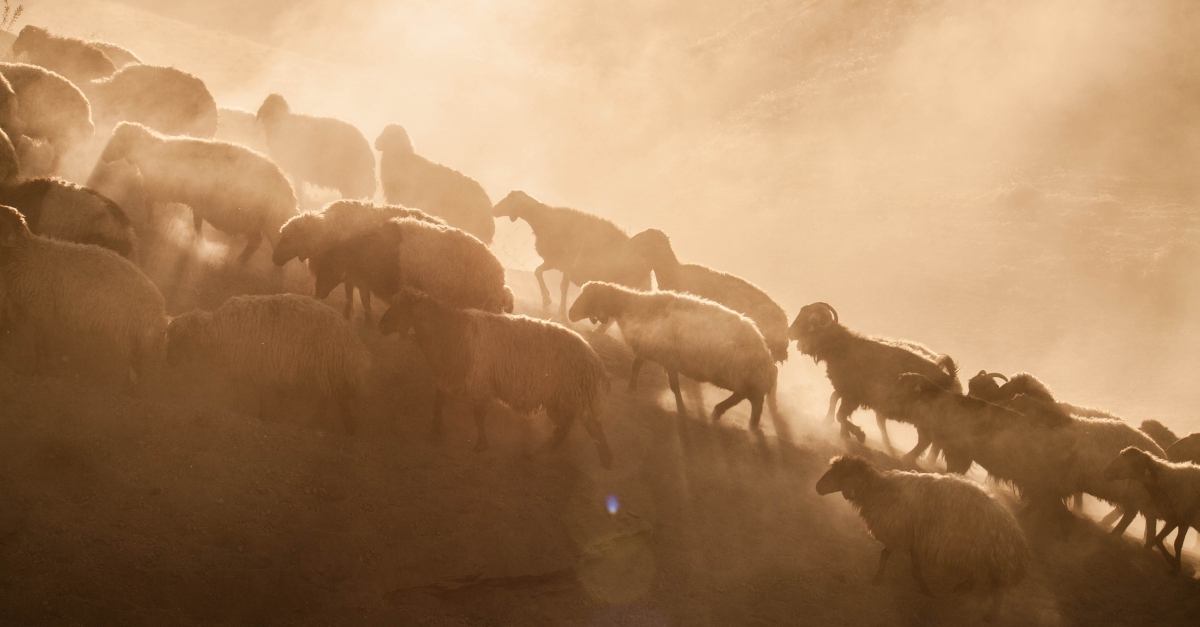
The third time he said to him, “Simon son of John, do you love me?” Peter was hurt because Jesus asked him the third time, “Do you love me?” He said, “Lord, you know all things; you know that I love you.”Jesus said, “Feed my sheep.” – John 21: 17 (NIV)
Can you hear the urgency in Jesus' question for Peter? The tenderness in the way he pushes Peter past his failure of denying Jesus and into living a life that continues to honor Jesus? After reading this exchange, we can all start to see God’s heart of love for humanity. He desires us to be people who live in service of others!
Jesus goes out of his way to clear the air between Peter and himself. He does not leave this Earth without making sure Peter knows that He is forgiven and that God still has a place for Peter in his Kingdom. Jesus also gives the rest of us insight as to what those who proclaim they love Him must do. He wants us to feed his sheep.
Jesus calls for action to accompany our faith; giving meaning and purpose for our Christian lives.
Let’s be the people that take Jesus’ words seriously and begin to willingly give our time and talent so that we are a blessing to those around us. Philippians 2:17 says, “But I will rejoice even if I lose my life, pouring it out like a liquid offering to God, just like your faithful service is an offering to God. And I want all of you to share that joy.”
May we all have the opportunity to share the joy that comes when we are faithful to serve. Let’s explore what Jesus is saying to Peter in John 21 and how we can apply these words to our own lives.
Photo Credit: ©Getty Images/Pavol Klimek
What Does ‘Feed My Sheep’ Mean In the Gospel of John?

Three times Jesus charges Peter to care for his church. Jesus tells Peter to feed his lambs, feed his sheep, and then again to feed his sheep. The “lamb and sheep” that Jesus is referring to is the church of Christ. Becoming part of Christ's church means we accept him in our hearts as our Lord and Savior through a prayer of faith.
We see the term sheep used elsewhere in the Bible. In Luke 15:4-7 Jesus tells the parable of the lost sheep and says he would leave the 99 to find the one lost sheep. John 10:11 states that Jesus is the good shepherd and he will lay down his life for his sheep.
Jesus is our chief shepherd, caring for all of his followers. Jesus invited Peter and all his disciples to take part in caring for his church. In this text “feed my sheep” means more than just give them food; it's referring to the work of a shepherd. They are called to nurture others, care for the church, feed believers and the lost with spiritual food, protect those in the church, and go out and seek the lost “sheep” that are still out in the world.
Why does Jesus give Peter this charge? It was a way to not only forgive Peter for his earlier betrayal of Christ but to show that Jesus had absolute trust in Peter’s ability to lead in God’s church. Jesus forgives Peter and entrusts him with being part of the most important work to be done here on Earth.
Photo Credit: ©Unsplash/Nabih e Navarro
Who Was Jesus Instructing and Why?

In John 21, Peter and a few of the disciples decide to go fishing; but after fishing all night they had no success. In the morning, a man calls to them from the shore asking if they had caught any fish. They reply “no” and he tells them to cast their net on the right side of their boats. When they listen to the man from the shore's instructions they suddenly catch an abundance of fish! As they are pulling up the net, packed full of fish, John recognizes that the man on the shore is Jesus and shares this revelation with Peter. Peter immediately jumps out of the boat and eagerly swims to shore to meet Jesus!
When Peter gets to Jesus he sees that Jesus is waiting with fish and bread ready for them to eat. Jesus invites Peter to have breakfast with him and then in verse 17 begins to ask Peter if he loves him. Jesus asks Peter “if he loves him” three times—mirroring how Peter denied Christ three times before he was killed on the cross.
Jesus’ conversation with Peter is Jesus restoring his relationship with Peter, charging Peter to continue the mission of sharing the good news of Jesus with the world, and preparing Peter for what it was going to take to be his follower in the coming months and years. Jesus foretells Peter’s death and instructs him not to worry with the fate of the other disciples but to focus his mind on following Jesus well (John 21:18-22).
Jesus is sharing with Peter and the disciples who are huddled around this breakfast fire during this intimate exchange that to love him was going to mean action on their end. Loving Jesus looked like “feeding his sheep.” These men went out from these precious encounters with Jesus, before he ascended to Heaven, and they all gave all their lives to grow the early church.
Photo Credit: ©Getty Images/1971yes
Other Biblical Translations of John 21:17

John 21:17 (KJV)
He said unto him the third time, “Simon, son of Jonah, lovest thou Me?” Peter was grieved because He said unto him the third time, “Lovest thou Me?” And he said unto Him, “Lord, Thou knowest all things. Thou knowest that I love Thee.” Jesus said unto him, “Feed My sheep.
John 21:17 (AMP)
He said to him the third time, “Simon, son of John, do you love Me [with a deep, personal affection for Me, as for a close friend]?” Peter was grieved that He asked him the third time, “Do you [really] love Me [with a deep, personal affection, as for a close friend]?” And he said to Him, “Lord, You know everything; You know that I love You [with a deep, personal affection, as for a close friend].” Jesus said to him, “Feed My sheep.
John 21: 17 (MSG)
Then he said it a third time: “Simon, son of John, do you love me?” Peter was upset that he asked for the third time, “Do you love me?” so he answered, “Master, you know everything there is to know. You’ve got to know that I love you.” Jesus said, “Feed my sheep. I’m telling you the very truth now: When you were young you dressed yourself and went wherever you wished, but when you get old you’ll have to stretch out your hands while someone else dresses you and takes you where you don’t want to go.” He said this to hint at the kind of death by which Peter would glorify God. And then he commanded, “Follow me.”
John 21:17 (NLT)
A third time he asked him, “Simon son of John, do you love me?” Peter was hurt that Jesus asked the question a third time. He said, “Lord, you know everything. You know that I love you.” Jesus said, “Then feed my sheep.
John 21:17 (NKJV)
He said to him the third time, "Simon, son of Jonah, do you love Me?" Peter was grieved because He said to him the third time, "Do you love Me?" And he said to Him, "Lord, You know all things; You know that I love You." Jesus said to him, "Feed My sheep.
Photo Credit: ©Getty Images/Mahmud013
The Meaning in Jesus’ Repetition and Wording
The repetition of Jesus' question “do you love me” grieved Peter for a few reasons.
First, Peter feared that Jesus doubted his sincerity and repentant heart.
Next, it brought to mind Peter’s denial of Jesus before Jesus’ crucifixion.
Lastly, it made Peter feel that Jesus may be alluding to a future failure of Peter, as he had when Jesus predicts Peter’s three denials of knowing him. By the end of the exchange is it clear that Jesus is repeating himself to demonstrate that Peter has been fully restored to his role as an apostle.
As an apostle, Peter was commissioned to “feed his sheep.”
To “feed my sheep” can be translated “to give food” but the word used implies more than just physical feeding other others. The text is pointing to Peter to take on the role of a shepherd, who would guide, watch, and defend the sheep as well as feed them. “My sheep” commonly refers to the church throughout the Bible.
A Prayer for Guidance to Feed Jesus’ Sheep
God, please give us a heart of love for Jesus and his sheep or church. Holy Spirit, show us how to be people that feed Jesus’ sheep. May we take your command to serve you with all we have seriously. Give us the strength we need to be obedient to your calling. Amen.
Jesus instructed all his disciples, not only to be fishers of men, by sharing the good news of the gospel with the world, but feeders of the flock, by the edification of saints. We each can take this charge—to care for the church—to heart. How can we better serve one another and our church communities? How can we be people who go after that one lost sheep? These are questions that all believers have to prayerfully consider as they choose how to spend their days here on Earth.
Recommended for You:
3 Wonderful Lessons in the Parable of the Lost Sheep
Are You a Shepherd Keeper? 5 Critical Reasons to Support Leaders
How to 'Serve One Another in Love' without Getting Burnt Out
Photo Credit: ©Getty Images/Rawpixel